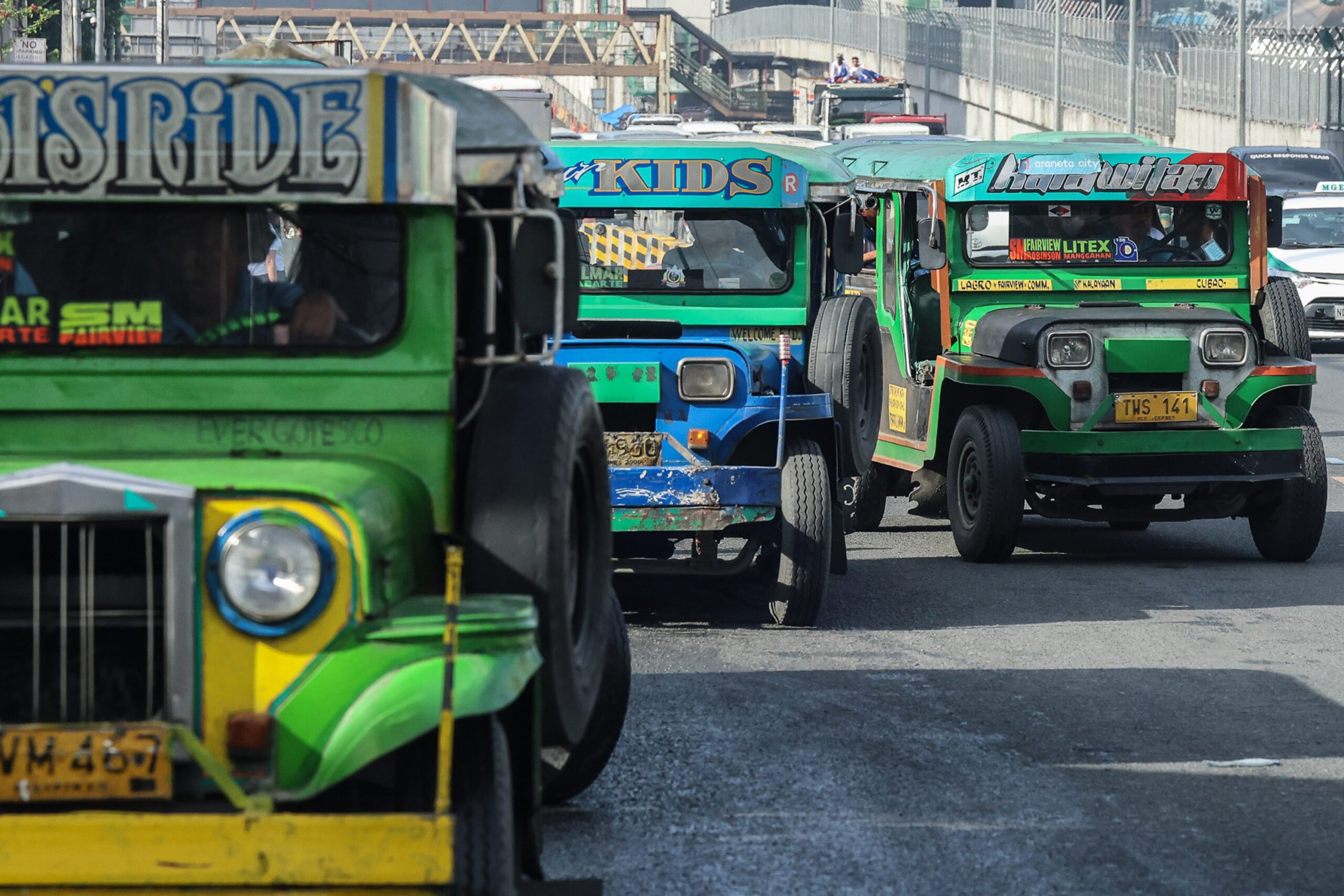SUMMARY
This is AI generated summarization, which may have errors. For context, always refer to the full article.

MANILA, Philippines – The House of Representatives Committee on Transportation has approved a motion requesting President Ferdinand Marcos Jr. to extend the January 31 deadline for the PUV Modernization Program until there is a “concrete plan to address the major issues.”
“With the love of our country, and notwithstanding all the different issues surrounding this modernization, may I move to request His Excellency, the President of this country, President Ferdinand Bongbong Marcos, to reconsider the implementation of the deadline on January 31 on the consolidation under the modernization program?” said Lone District of Santa Rosa, Laguna Representative Dan Fernandez during the committee meeting on Wednesday, January 24.
The motion was quickly seconded by lawmakers present, and no others objected.
Fernandez first raised the motion during the committee’s January 10 meeting, but the motion was not approved due to a lack of quorum.
Although the resolution is still subject to amendment, the most pertinent snippet of the draft reads: “[The House of Representatives resolves] to urge the President of the Philippines and the Department of Transportation to reconsider the implementation of the deadline for industry consolidation under the Public Utility Modernization Program which lapsed on December 31, 2023, thereby extending the same until the government can come up with a concrete plan to address the major issues in the implementation of the program.”
Throughout the January 10 and Wednesday’s committee hearings, lawmakers questioned whether the Department of Transportation and the Land Transportation Franchising and Regulatory Board (LTFRB) were ready to implement the modernization program.
Lawmakers also raised concerns that public transportation could be disrupted by February 1, after unconsolidated jeepneys will not be allowed to ply their routes anymore.
Asked what assurance the LTFRB can give that there will be no shortage of PUVs next month, LTFRB Board Member Riza Marie Paches said that the agency has already identified the cooperatives and corporations that can take over the routes being plied by unconsolidated jeepneys. If there are observed shortages in routes, permits for these consolidated entities to assume those routes could be issued within the same day.
Paches said that LTFRB regional directors and transportation officials have “assured and committed that there will be no disruption in supply.”
Lawmakers also cast doubt on the LTFRB’s “changing” figures on industry consolidation. For instance, LTFRB Chairperson Teofilo Guadiz III said during the hearing that “in terms of modes of public transport, there are about 163 unconsolidated routes for NCR [National Capital Region].”
However, according to documents provided by the LTFRB on its website, there are at least 396 unconsolidated routes – 320 jeepney routes and 76 UV Express routes – registered in the LTFRB’s National Capital Region (NCR) office. If we include all routes that pass through Metro Manila, some of which are registered in LTFRB’s Central office, that number goes up to 503 unconsolidated routes, or 395 jeepney routes and 108 UV Express routes.
Commuters may search through Rappler’s database of jeepney and UV Express routes to see if the route that they take will be affected by the January 31 deadline. (READ: Check if your jeepney, UV Express route will still exist by February 1).
‘Kayamanan na ho namin ang jeep’
Jeepney operators in the hearing also talked about how the consolidation requirement can hit them hard. Lilian Sembrano, a jeepney operator in Bacolod City, said that 73% of operators in the area chose not to consolidate because they want to retain their individual franchises and operate individually. Sembrano, along with other operators, pointed out how in-fighting and politics in cooperatives and corporation can actually cause an operator to be kicked out.
Meanwhile, Lito Andal, a jeepney operator in Batangas, questioned why some cooperatives and corporations in their area were not being led by operators but by public servants, such as retired policemen and barangay councilors. He also pleaded to officials for unconsolidated operators to be permitted to keep operating and to retain their jeepneys.
“‘Pag kami hindi pinagpasada sa February 1, ano hong aming papakain sa aming pamilya?” Andal said. “Ito lang ho ang aming alam na hanapbuhay.”
(If we’re not allowed to ply our routes by February 1, how will we feed our families? This is the only livelihood that we know.)
“Ang magiging kapalit po nito ay ‘yun ho aming kahirapan sa buhay. Kayamanan na ho namin ang jeep…. Pag may manganganak, yung din po sinasakyan. Pag may dadalhin ho sa ospital, alas-dos ho ng madaling araw, o anong oras, ‘yun din po namin sinasakyan. Paano naman po kung iyun isusurrender na namin?” he added.
(In exchange for this will be our poverty. We already consider the jeep as our wealth… If someone’s giving birth, that’s what we ride. If we need to bring someone to the hospital, at 2 am or whatever time it might be, that’s what we ride. So, what happens now if we surrender it?)
The probe into the PUV modernization program came after House Speaker Martin Romualdez alleged that “corrupt practices may have tainted” its implementation. (READ: Anti-poor? How gov’t defends PUV modernization, why jeepney stakeholders oppose it) – Rappler.com
1 comment
How does this make you feel?




![[Under 3 Minutes] When will we see modern jeepneys on the road?](https://www.rappler.com/tachyon/2024/04/francisco-motors-modern-jeepney-prototype-1.jpg?resize=257%2C257&crop=590px%2C0px%2C1012px%2C1012px)
I hope President Marcos Jr. will follow the House of Representatives Committee on Transportation request. The idea is “to extend the January 31 deadline for the PUV Modernization Program until there is a ‘concrete plan to address the major issues.’” With all the experts in the Government, especially in the Department of Transportation, nobody could create such a concrete plan to address the significant issues. The major problems are lack of funds and corruption. However, these major problems will not be addressed unless the root cause is first dealt with; the root cause is that the affected transport sector is just not on President Marcos Jr.’s government’s top priority list.